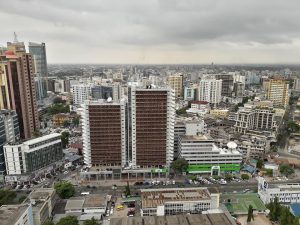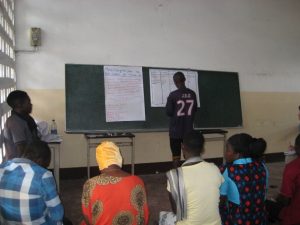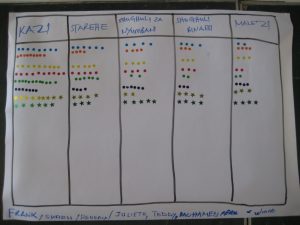Is now the right time to promote the inclusion of men within research on informality?
Think-Piece by Nathan Salvidge
Doctoral Research Student, Geography & Environmental Science & Participation Lab Advisory Group Postgraduate Representative
The significance of the informal sector to global cities has been widely acknowledged. Informal work is expected to continue to grow and remain a vital source of income for millions of people within urban localities across the global South for many decades. The experiences of informal workers vary enormously as they are an incredibly diverse group of people. Accordingly, a more gendered analysis is required of the differential effects of informality on both men and women. In this research, it was apparent that mounting economic pressures were having a notable effect on traditional gendered roles and relations in Dar es Salaam. Yet, men’s contributions to unpaid care and domestic work have seldom been identified and discussed within other studies on informality. An inclusion of men within this research allowed for a greater understanding of the interconnected and interdependent livelihoods of men and women who work informally. Research such as this, will be vital if the Sustainable Development Goals on gender equality, decent work and sustainable cities among others, are to be met. My research ultimately seeks to stimulate dialogue on the gender dynamics of informality within the city.
I undertook fieldwork in Dar es Salaam, Tanzania for seven weeks as part of my Master’s in Research dissertation. Dar es Salaam was selected, as it has high levels of informality and it is predicted to undergo rapid urbanisation and become a megacity by 2030. I used qualitative research methods to understand more about the diverse informal livelihoods within Dar es Salaam, and the extent to which these are shaped by gender relations. I also wanted to understand if there were any contemporary changes occurring within the informal sector in Dar. The research was based on 18 semi-structured interviews with both professionals (n= 11) and informal workers (n= 7). Of the seven informal workers interviewed, two were women and five were men; four were aged 18-25 and three were aged 26-50. The work these informal workers undertook ranged from farming and soap making, to selling shoes and mandazi (doughnuts). Interviews were complemented by ongoing observations of informal street and market trading, and one focus group/participatory diagramming session with four men and four women aged between 18-25 was also utilised.

The research found that informal work is becoming increasingly common due to an absence of formal job availability and a lack of welfare provisions provided by the national government. Generally, people have no option but to undertake informal work to sustain their livelihoods as there are very few alternatives. Men and women in this study identified that they undertook informal work for survival, and predominately used their income(s) to pay for: food, water, accommodation, transportation, school fees, medication and so forth. Interestingly, people also identified broader motivations for undertaking informal work. These were related to wider issues of national and continental food insecurity, and widespread poverty. A male farmer (21 years old), stated that he had started a farming business to produce food for his local community, whilst a female informal teacher (18 years old) explained that she had started teaching young children because there were many parents who could not afford to send their child(ren) to school. These wider motivations have only been recognised in a handful of other studies. Gaining a broader understanding of the diverse motivations of informal workers is another step towards gaining a better knowledge of their overall complexity and heterogeneity.
The importance of informal work to local communities is often grossly overlooked too. It is widely recognised as a crucial income-generating activity, yet there is little consideration into its socio-economic importance within cities; many people rely on the services and products provided by informal workers. Professionals highlighted that informal workers often had a ‘strategy’ and identified gaps in the market which they would aim to fill. Rather than simply starting a business spontaneously, informal workers would try to meet the demands and needs of the local community. This could be anything from a low-priced restaurant or hairdressers, to a specific type of service such as shoe shining.
Despite acknowledging the motivations of informal work and the importance of informal workers, it is crucial to remember that informality is characteristically unpredictable, vulnerable and volatile. As the population of Dar es Salaam rapidly increases, informal labour markets will become more competitive and oversaturated.
Due to economic pressures, men and women are starting to undertake work and perform roles that traditionally they would not have undertaken. For example, men can now be found working in areas of food processing and textiles, and women are working in construction and motor mechanics. As daily life becomes increasingly challenging, traditional gendered boundaries are beginning to blur as jobs and roles must now be done out of necessity rather than through choice or tradition. Ruth Evans’ research in Tanzania highlights that men are increasingly transgressing culturally expected gendered norms by undertaking caring responsibilities and domestic work. During a participatory diagramming session (see Fig. 2), male informal sector workers in this study also actively acknowledged their roles in caring and domestic work (see Fig. 3). This was somewhat contentious, and the women in the group disagreed with the notion that men perform any sort of caring and/or domestic duties. Unsurprisingly, this sparked a rather prolonged debate. During a semi-structured interview, a male farmer (21 years old) who had been part of the diagramming/focus group session explained to me that; ‘the responsibility which I have right now is to take a good care of my mother’. Evidence of changes in traditional gendered norms shows the need for further gendered analyses, along with a greater inclusion of men within research on informality so that their lived experiences can be better understood; something that has mostly been lacking in this field of research.


I am aware that this is a relatively small study and thus the results cannot be generalised, nor are they conclusive. Moreover, it is important to acknowledge the important work which has identified women’s overburdened status and concentration within the lower echelons of informal work. There must be a consideration of the wider structural inequalities which constrain women both socially and economically. Thus, many would argue that it is not as easy as simply ‘bringing men into the debate on informality’, nor would it be appropriate. However, men’s positions within informal work are changing, with some suggesting they are experiencing increasing levels of marginalisation and disempowerment. Moreover, men’s and women’s roles are often interdependent and complementary within informality. When talking to an NGO worker he explained that, ‘men and women do support each other. There’s those men who say own a motorbike, so they can go to the market maybe to buy things from the wholesale for the women to sell’. A female informal worker also explained that she and her husband jointly pay to send their son to school.
More studies must take a holistic approach when analysing and understanding the contemporary livelihoods of informal workers. There needs to be recognition that the livelihoods of men and women who work within the informal sector are changing. Evidence is needed to inform the development of appropriate policies and initiatives that aim to improve workers’ socio-economic status in urban areas in the global South. This research is pertinent to the Sustainable Development Goals (SDGs), which aim to promote ‘decent work’ and ‘gender equality’ within a wider 17-point agenda aimed at achieving worldwide urban sustainability by 2030. As Dar es Salaam’s population grows rapidly over the next decade, it will be vital to understand the changes that are occurring within the informal sector so that workers can be appropriately and effectively supported.
A Report of the key findings is available here.
For further information, please contact: Nathan Salvidge, email: n.salvidge@pgr.reading.ac.uk.
